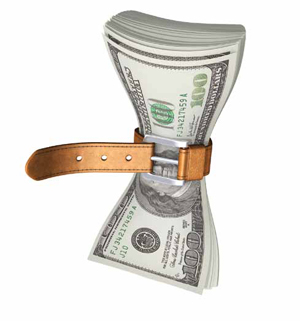Grant-Writing Strategies

By Gary A. Carnow, Ed.D.
Even if you have never written a grant proposal, you can succeed at it. It is a lot like planning a lesson; you already know how to do that. Many teachers and administrators turn to grant development to embark on innovative work—work that often has no committed funding or that there is no time to attempt in this era of shrinking budgets.
Writing a grant proposal is both an art and a science. Through experimentation, science establishes truth or finds objective facts. Art uses ideas and emotions to communicate. Grant-proposal writing requires you to think through and express your problems and your proposed solutions to them in a clear, understandable format. With practice and persistence, you can become skilled in creating fundable proposals. Here are four strategies for keeping your eyes on the road to success in grant-proposal writing.
Why Do You Need This Grant?
You may be able to make a good case for acquiring a particular technology of your choice. But grants fund ideas, not stuff. Your job in creating a fundable proposal is to express your wants and needs as creative ideas for programs. As you develop your proposal, explain what the kids are going to do. Describe who will benefit and how you will know you have made a difference.
All in the Organization
Proposals that are organized, well written, and focused have a better chance of being funded. A well-written proposal answers the questions of who, what, when, where, why, and so what; be succinct, and get to the essence of what you are trying to do. Plain language is efficient for both the author and the reader. So much about grant-proposal writing seems mysterious to those just starting out, but remember that a grant proposal is very structured. It is more like a newspaper article than a short story. Write so that you draw the reader into your program from your opening sentence.
Tools and ideas to transform education. Sign up below.
Time Management
Writing a grant proposal is a daunting exercise in time management. Writing one always takes longer than you plan on spending. Schedule time to write. Estimate how long it will take to coordinate grant planning and research. And how much time will it take you to write and package your proposal, then submit it and follow up on it? Figure out what you believe is a realistic time allotment. Then double that and get to work.
Collaboration
Writers of grant proposals typically find that collaboration is an essential ingredient in preparing one except when it comes to actually writing it. A grant proposal by committee is a painful document to read. Teams do help you brainstorm, analyze what is and what could be, develop goals and objectives, determine an evaluation plan, and put the action plan into monetary terms with a best-guess budget. Teams also provide great feedback on a first draft and help the main writer of the proposal include topics that may have been overlooked and improve areas that need work.
